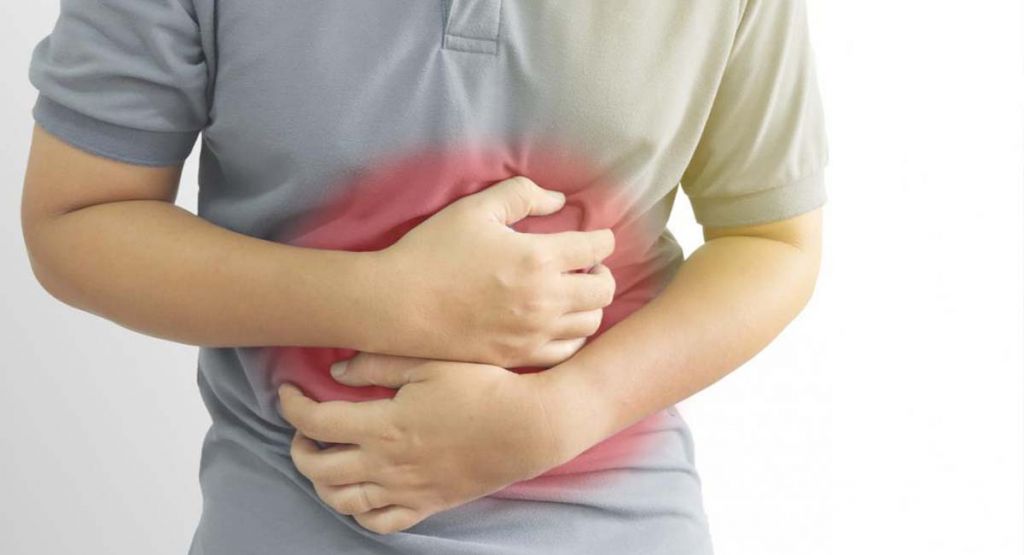Hemorrhoids are a common condition that affects millions of people worldwide, causing discomfort and pain in the anal area. Abdominal cramping is another issue that many people experience. But can hemorrhoids cause abdominal cramping? Understanding the relationship between these two conditions can help in managing symptoms and seeking appropriate treatment.
What Are Hemorrhoids?
Hemorrhoids are swollen veins in the lower rectum and anus. They can be internal (inside the rectum) or external (under the skin around the anus). Hemorrhoids are common and can result from increased pressure in the lower rectum due to straining during bowel movements, sitting for long periods, or other factors.
Symptoms of Hemorrhoids
Hemorrhoids can cause a range of symptoms, including:
- Pain or discomfort: Particularly during bowel movements or when sitting.
- Itching or irritation: Around the anus.
- Swelling: Around the anus.
- Bleeding: Small amounts of bright red blood during bowel movements.
- A lump near the anus: Which may be sensitive or painful.
Abdominal Cramping: An Overview
Abdominal cramping refers to pain or discomfort in the stomach area, which can range from mild to severe. It can be caused by various factors, including digestive issues, infections, and chronic conditions.
Common Causes of Abdominal Cramping
- Digestive Disorders: Conditions like irritable bowel syndrome (IBS), Crohn's disease, and ulcerative colitis.
- Infections: Gastrointestinal infections caused by bacteria, viruses, or parasites.
- Gas and Bloating: Excessive gas in the intestines can lead to cramping.
- Menstrual Cramps: In women, menstrual cycles can cause abdominal pain and cramping.
- Food Intolerances: Reactions to certain foods, such as lactose intolerance or gluten sensitivity.
The Connection Between Hemorrhoids and Abdominal Cramping
While hemorrhoids themselves do not directly cause abdominal cramping, there are situations where these two conditions may be linked.
Constipation and Straining
One of the primary causes of hemorrhoids is constipation, which involves difficulty passing stools and infrequent bowel movements. Constipation can lead to:
- Straining During Bowel Movements: Increased pressure in the abdomen while trying to pass hard stools can cause hemorrhoids to develop or worsen.
- Abdominal Discomfort: The effort involved in straining can also lead to abdominal cramping.
Irritable Bowel Syndrome (IBS)
IBS is a common digestive disorder that causes symptoms such as:
- Abdominal Pain and Cramping: Often relieved by bowel movements.
- Changes in Bowel Habits: Including constipation, diarrhea, or both.
- Hemorrhoids: Chronic constipation or diarrhea associated with IBS can lead to the development of hemorrhoids.
Managing Hemorrhoids and Abdominal Cramping
If you are experiencing both hemorrhoids and abdominal cramping, addressing the underlying causes can help alleviate symptoms.
Treating Constipation
- Increase Fiber Intake: Eat more fruits, vegetables, whole grains, and legumes to soften stools and promote regular bowel movements.
- Stay Hydrated: Drink plenty of water throughout the day to keep stools soft.
- Exercise Regularly: Physical activity helps stimulate bowel function and prevent constipation.
- Use Laxatives: For short-term relief, over-the-counter laxatives can be helpful, but they should not be used long-term without consulting a healthcare provider.
Managing IBS
- Dietary Changes: Identify and avoid trigger foods that worsen symptoms. Common triggers include dairy, gluten, and high-fat foods.
- Stress Management: Stress can exacerbate IBS symptoms. Techniques such as yoga, meditation, and deep breathing exercises can help.
- Medications: In some cases, medications prescribed by a healthcare provider can help manage IBS symptoms.
Hemorrhoid Treatment Options
There are several treatments available for managing hemorrhoids, ranging from home remedies to medical procedures.
Home Remedies
- Warm Sitz Baths: Soaking the anal area in warm water for 15-20 minutes several times a day can help reduce pain and swelling.
- Topical Treatments: Over-the-counter creams and ointments can provide relief from pain and itching.
- Cold Compresses: Applying ice packs to the affected area can help reduce swelling and discomfort.
- Good Hygiene: Keep the anal area clean and dry. Use moist wipes instead of dry toilet paper to avoid irritation.
Medical Treatments
- Minimally Invasive Procedures: Such as rubber band ligation, sclerotherapy, and infrared coagulation can be performed in a doctor's office to treat persistent hemorrhoids.
- Surgery: In severe cases, a hemorrhoidectomy (surgical removal of hemorrhoids) may be necessary.
When to Seek Medical Attention
While many cases of hemorrhoids and abdominal cramping can be managed with home remedies and lifestyle changes, it's important to seek medical attention if you experience:
- Severe Pain: Unrelieved by over-the-counter treatments.
- Excessive Bleeding: During bowel movements or between bowel movements.
- Changes in Bowel Habits: Such as prolonged constipation or diarrhea that does not improve with treatment.
- Fever: Or other signs of infection.
Prevention Tips
Preventing hemorrhoids and abdominal cramping involves making lifestyle changes that promote digestive health.
Dietary Adjustments
- Eat High-Fiber Foods: Fiber helps prevent constipation and promotes regular bowel movements.
- Stay Hydrated: Drinking enough water is crucial for softening stools.
- Limit Processed Foods: Reduce the intake of processed foods, which can contribute to constipation.
Healthy Bowel Habits
- Avoid Straining: Take your time during bowel movements and avoid straining.
- Go When You Need To: Don't ignore the urge to have a bowel movement, as delaying can lead to constipation.
- Use the Bathroom Regularly: Establish a regular bathroom routine to promote consistent bowel movements.
Physical Activity
- Exercise Regularly: Physical activity helps maintain healthy digestion and prevent constipation.
- Avoid Prolonged Sitting: If you have a sedentary job, take breaks to stand and move around.
Is There a Link?
While hemorrhoids and abdominal cramping are not directly linked, they can occur together due to shared underlying causes such as constipation and digestive disorders like IBS. Understanding the relationship between these conditions can help in effectively managing and treating symptoms. By adopting a healthy lifestyle, including a high-fiber diet, regular exercise, and proper hydration, you can reduce the risk of developing hemorrhoids and alleviate abdominal cramping. If symptoms persist or worsen, it's important to seek medical attention for appropriate diagnosis and treatment.

